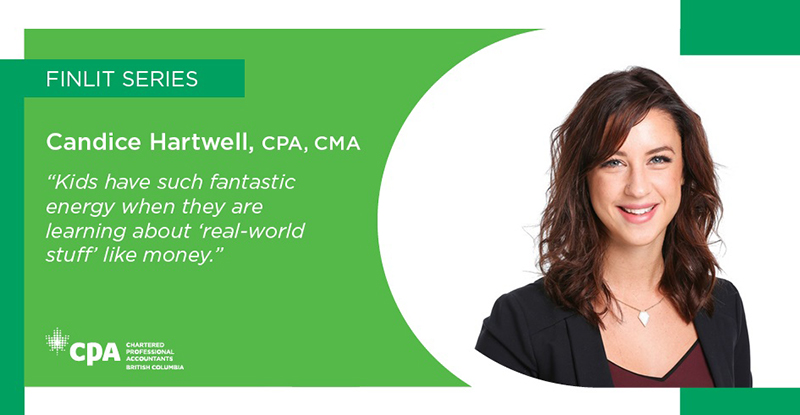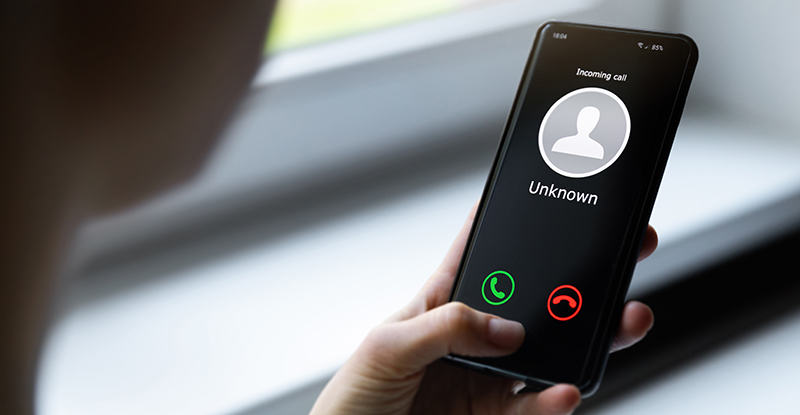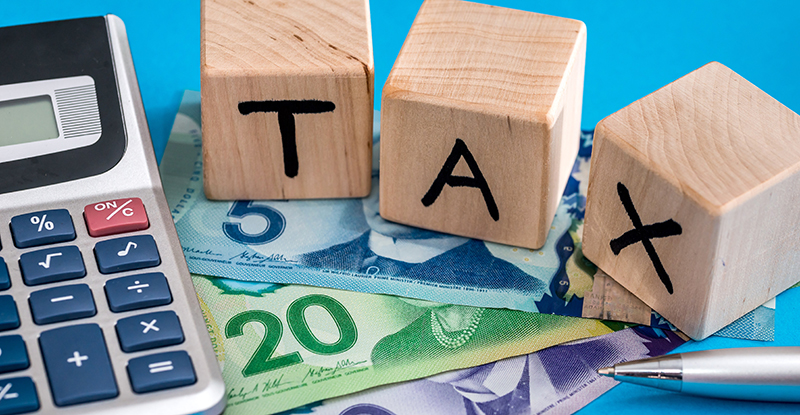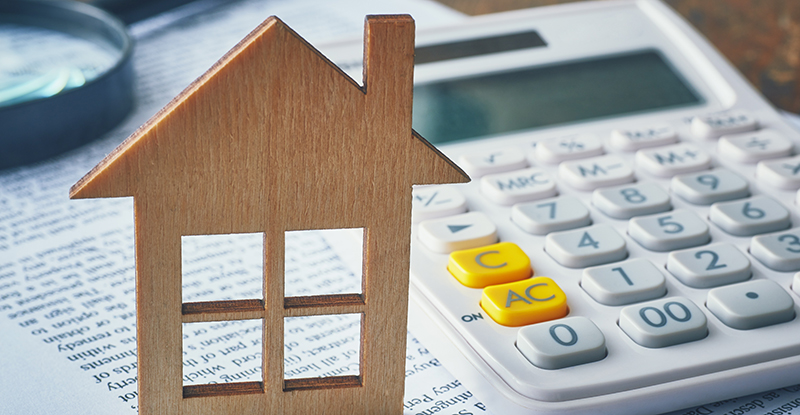
Name: Candice Hartwell, CPA, CMA
Volunteering since: 2016
Motivation for volunteering: “After becoming a CPA, I felt so fortunate that I belonged to a new community and had a new toolkit of skills – I was keen to give back!”
If you would like to receive a financial literacy presentation geared to elementary, high school, or post-secondary students, the CPA Financial Literacy Program offers free workshops. To receive more information or book a workshop, please contact our CPABC FinLit team.
“I wish I’d known how to start saving for retirement when I was young… I would’ve liked to have known how to draw up and keep to a budget... I would have benefited from an explanation of how to use credit cards properly…” As adults, many of us have misgivings about how we managed our finances when we were young.
Without financial literacy, young people can tend to learn how to manage their finances through trial and error, or by emulating the behaviour of friends or family. Those who are taught money management skills early in life tend to keep and use these skills throughout life.
Financial education is related to positive changes in financial behaviours – particularly important at a time when the job market and economy are characterized by uncertainty. Candice Hartwell, a volunteer with the CPA Financial Literacy Program, plays an important role in this education. We recently caught up with Candice about her volunteerism and her tips to help young people become more financially savvy.
How did you get involved with the CPA Financial Literacy Program?
“During a local chapter event, our financial literacy area leader encouraged me to volunteer with her to present at elementary schools. I watched her present the first session, and then I jumped in for the second session and had such a blast! Kids have such fantastic energy when they are learning about ‘real-world stuff’ like money.”
What’s your most memorable moment as a FinLit presenter?
“I remember walking into a Grade 5/6 split class to talk about savings and bank accounts – the teacher had forewarned me about a particular student who was known to be disruptive, rude, and disengaged. She told me to not take it personally if he ignored my presentation.
However, once we started talking about money, debit cards, and credit cards, that student was fully engaged – I think he asked around 10 questions during our discussion! The school’s principal had even stopped by to watch. Afterwards, the principal and teacher commented about how blown away they were that the student (and the class) were so attentive, inquisitive, and absorbed by the topics we were discussing.”
In terms of money management, what are some things you wish you had known and done when you were younger?
“A great rule of thumb that I wish I had followed when I was younger is the 20/50/30 rule for setting a budget: for every dollar you receive, put 20% to savings, spend 50% on your “needs” and 30% on your “wants.” Learning to differentiate between your financial obligations, your financial goals and your ‘nice to haves’ is a lesson young people will carry with them for the rest of their life.”
What tips do you have for the younger generation on preparing themselves financially for the future?
“Lifestyle inflation – an increase in spending that can occur when an individual’s income goes up – is a real (and dangerous) thing! The more we make, the more we’re tempted to spend on expensive things – we can end up netting the same as we would in a lower paying job (if not less) if we get caught in this trap!
Social media also pushes the message that it’s OK to splurge on things outside of our budgets by justifying that ‘we’ve earned it’ or that ‘we deserve it’. But you owe it to your future self to be disciplined enough to have a rainy day fund and to diligently save for the future.”
In this uncertain time, why is it especially important for young people to be financially literate?
“I believe financial literacy is more than just learning how to set up a budget and track spending – it’s about having the practiced discipline to know what is a need versus a want, and to consistently make conscious, informed decisions. The younger we learn how to incorporate this practice into our financial decisions, the better.
A silver lining in these strange times may be that families are starting a budget and discussing household financials for the first time, and many of them are involving their kids! Hopefully these are healthy habits that we continue well into the future.”
Are there any apps you recommend for personal financial planning, particularly for young people?
“I really like the ones that track your spending automatically: YNAB (You Need a Budget) – which teaches money management and how to prioritize expenses and plan their finances, and Mint – which helps you plan your budget and track your spending. I also find the visual expense summaries with online banking useful. It’s one thing to budget for something, but quite another to review what you actually spend.”
To receive a financial literacy presentation geared to elementary, high school, or post-secondary students, please contact our CPABC FinLit team.
Leah Giesbrecht is a communications specialist with the Chartered Professional Accountants of BC.



